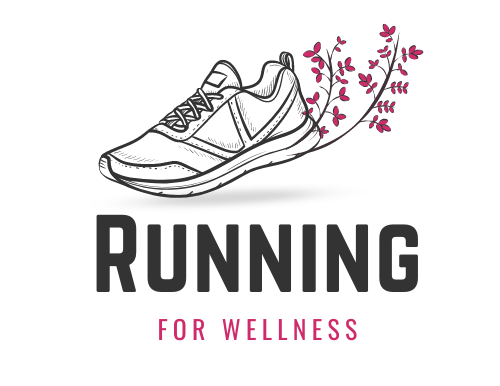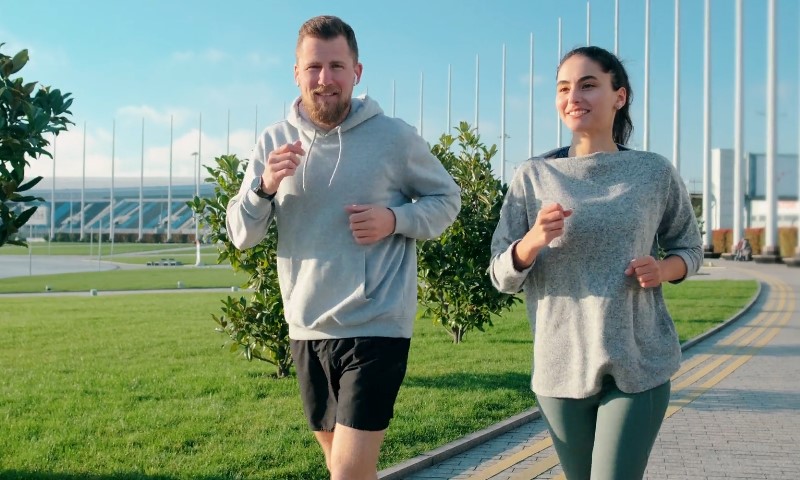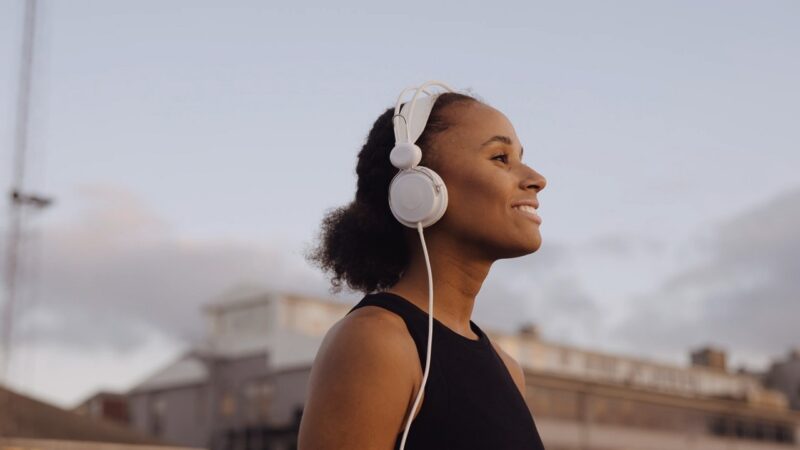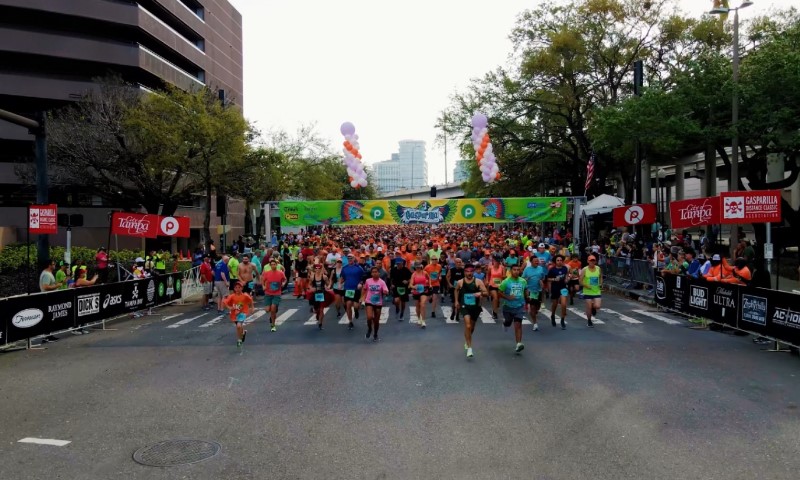Sleep and exercise go hand in hand, just like peanut butter and jelly. Running, in particular, can really change the life of anyone struggling to get quality shut-eye. But why is that? Let’s lace up, and I will explain it to you.
Table of Contents
ToggleMood Stabilization
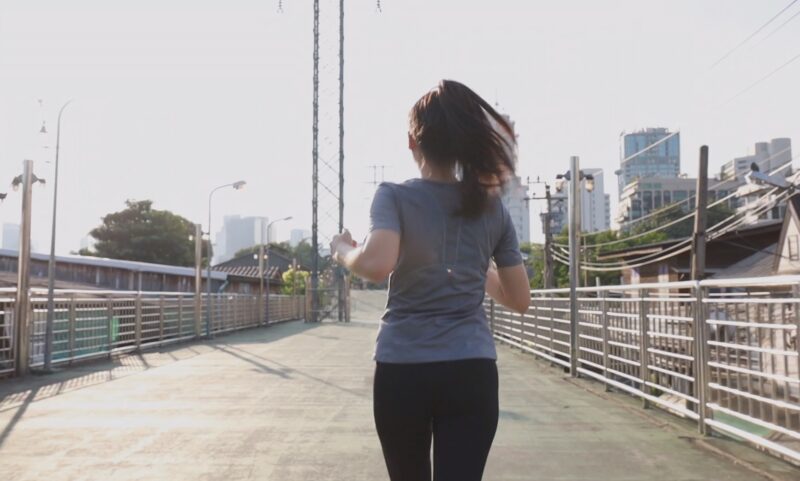
We all know running can be a pain—literally and figuratively. But did you know it can also be a mood elevator? Running triggers the release of endorphins and norepinephrine.
Endorphins, the body’s natural feel-good chemicals, and norepinephrine, a hormone that helps control stress responses, can help you feel more relaxed and ready to sleep.
So, even though you might feel like collapsing post-run, your brain is quietly thanking you for the workout.
Enhanced Slow Wave Sleep (SWS)
Slow Wave Sleep is the best part of sleep stages, especially if you’ve just put your body through the ringer. Moderate aerobic exercise, like running, has been shown to increase the duration of SWS.
This stage of sleep is crucial for physical recovery—think muscle, bone, and tissue repair—and for clearing out brain toxins and consolidating memories.
In other words, the more SWS you get, the more your body can bounce back from those grueling miles.
Regulates Body Temperature
Ever notice how you’re super hot after a run and then suddenly freezing? That’s your body regulating its temperature.
Running raises your core temperature, and as it cools down post-exercise, it mimics the natural temperature dip your body goes through before sleep.
Time your run just right—ideally finishing 60-90 minutes before bedtime—and you’ll find yourself dozing off much quicker.
Reduces Risk of Sleep Apnea
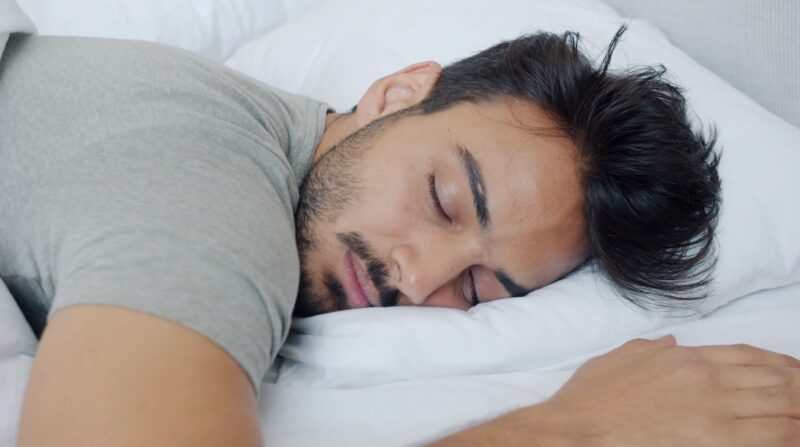
Sleep apnea sucks. It’s a condition where your breathing stops and starts while you sleep, leading to poor rest and a slew of health issues. One way to fight this is to run regularly.
Running helps prevent excessive weight gain, a major risk factor for obstructive sleep apnea. So, if your snoring is keeping your partner up at night, maybe it’s time to hit the pavement.
Increases Lifespan
Good news for those who think a 5-minute run isn’t worth the effort: even short bursts of running can extend your life expectancy.
Regular running helps counteract some of the negative health effects associated with poor sleep.
So next time you’re contemplating whether to run, remember it could help you live longer and sleep better.
You Can Sleep Longer
Regular cardiovascular exercise like running helps you fall asleep faster and sleep longer. If you’re counting sheep more than catching Z’s, it might be time to add running to your routine.
The physical exertion helps tire your body out, making it easier to drift off into dreamland.
Exercise Reduces Stress
Running might just be the best therapy out there. It helps reset your circadian rhythm and reduces symptoms of depression, stress, and anxiety—all key factors in promoting better sleep.
After a good run, your body and mind are more likely to relax, paving the way for restful slumber.
Bidirectional Relationship
Sleep quality and exercise performance benefit each other. Better sleep leads to better performance and vice versa.
When you sleep well, your body recovers more effectively, making you a stronger runner. And when you run well, you’re more likely to sleep better. It’s a win-win in every shape and form.
Dangers of Insufficient Sleep
Lack of quality sleep can reduce physical activity levels and increase calorie consumption by about 300 calories the following day. Insufficient sleep can make you feel sluggish, less motivated to exercise, and more likely to reach for unhealthy snacks.
It’s a vicious cycle that running can help break. It is also important to remember that habits are what make or break such a vicious cycle.
Recommendations for Better Sleep
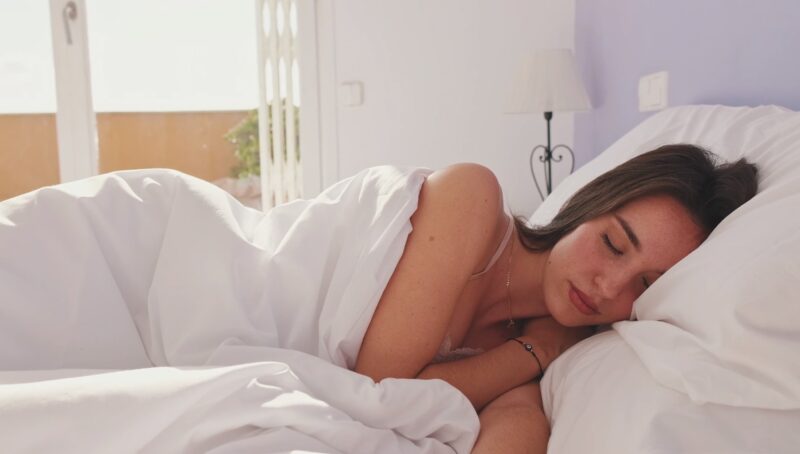
To improve sleep quality, reduce caffeine and alcohol consumption, manage stress, and consult a doctor if you suspect any underlying health issues.
Overtraining Can Cause Problems As Well
While running is great, overtraining without adequate rest can lead to increased inflammation, injury, and illness. Balance is key.
Make sure you’re getting enough rest to complement your running routine. Your body needs time to recover to perform its best.
Why Adequate Sleep Matters
Getting 6-8 hours of sleep per night is essential for human health. It enhances immune function, endocrine system function, and cognitive performance.
Poor sleep quality negatively impacts various aspects of daily functioning and health.
Sleep and Athletes
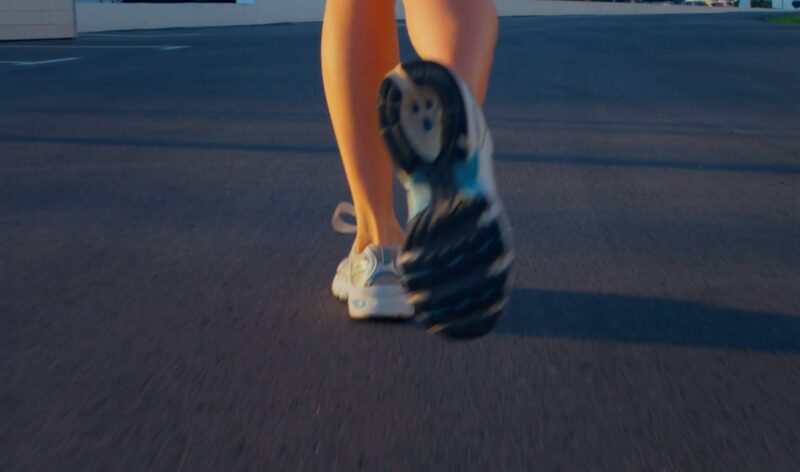
Sleep is particularly important for athletes. It influences physical, physiological, and cognitive performance and plays a key role in recovery from exercise.
However, athletes often experience less rest due to early morning training, injuries, and pre-competition anxiety.
Age and Sleep Patterns
Sleep patterns vary with age. Middle-aged adults often report poorer sleep health than younger adults.
Factors like stress, health issues, and lifestyle changes contribute to this decline in sleep quality.
Electronic Devices and Sleep
The use of electronic devices before bed, such as smartphones and tablets, can lead to poorer sleep quality and longer sleep latency. The blue light emitted from screens disrupts the production of melatonin, the sleep hormone.
Try to limit screen time before bed for better sleep. My recommendation is to avoid watching any screen at least two hours before sleep.
Pick up a book or look at the stars. Whatever suits you best. Just don’t look at that blue light and do that consistently. You will start sleeping better in no time.
Sleep Deprivation and Performance

Sleep deprivation can negatively affect endurance performance in athletes by reducing time to exhaustion and impairing cognitive functions. Lack of sleep makes it harder to focus, think clearly, and perform well.
Sleep Trackers
While sleep trackers can provide valuable insights, they may negatively affect sleep quality by increasing stress about sleep metrics, a condition known as orthosomnia. Instead of obsessing over numbers, focus on how you feel.
Final Thoughts
Running isn’t just good for your body; it’s great for your sleep. From improving mood to regulating body temperature and enhancing slow wave sleep, the benefits are undeniable.
So, if you’re tossing and turning at night, maybe it’s time to hit the trail. Just remember, balance is key, and a little bit of running can go a long way in improving your sleep quality and overall health.
Now, go out there and run like you’re being chased—by better sleep!
Related Posts:
- 25 Simple Running Motivation Tips To Get You Moving
- Top 400 Hilarious Gym Quotes to Keep You Motivated
- How Can You Start a Career as a Running Coach?
- How Far Is a Half Marathon? Everything You Need to Know
- How Long Does It Take to Train for a Half Marathon?
- Half Marathon Training Plan for Beginners - Simple…
